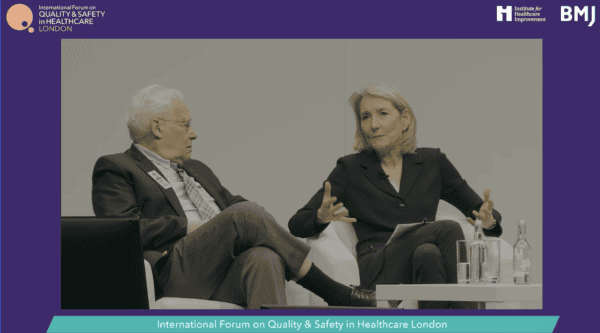Thanks, as always, to Ryan McCormack for this. He always shares so much good reading, listening, and viewing here! Subscribe to get these directly from Ryan via email.
News, articles, books, podcasts, and videos about how to make the workplace better.
Operational Excellence, Improvement, and Innovation
Whose Chatbot is it anyway?
In a March mixtape, I posted an article about the comical defence by Air Canada when they sought to shirk responsibility for bad advice given by their own chatbot. The proliferation of automation and AI raises questions regarding corporate responsibility and liability for new technologies, especially when it goes awry. Whose Chatbot is it anyway?
Harnessing the power of failure to improve quality in healthcare.
Here, in Manitoba, healthcare leaders have all but abandoned plans to improve quality, but in London, the IHI hosted an International Forum on Quality & Safety in Healthcare. I recommend watching the video of Keynote 3 where Amy Edmondson and Don Berwick discuss harnessing the power of failure to create meaningful change.

Adaptive Business Process Management
Digitalization of business processes means that gone are the days of the stodgy centralized governance of process documentation and standards. Business processes need to be changed and deployed rapidly at scale. The future of BPM lies in real-time adaptive adjustments of business processes.
Old Lean Guy on Strategy Deployment
Prioritizing and making choices remains a top challenge for senior leaders and managers. Bruce Hamilton reminds us that these challenges have little to do with tools and digitization as he reflects on 35 years of strategy deployment.
Creating a Culture of Improvement
Stopping finger-pointing doesn't mean letting everyone off the hook.
Leaders and employees often recoil when they hear of a “blame-free” environment. Doesn't that mean we are encouraging mistakes and eliminating responsibility? Larry Culp, CEO of GE sets the record straight by pointing out that replacing a finger-pointing culture with a problem-solving culture is “far more effective operationally”.
We pledge allegiance to the shareholder.
I've known people who feel strongly that signed pledges demonstrate real commitment., but they're not contracts and are usually acts of empty ceremony. For example, it's over 5 years since Business Roundtable released a Statement on the Purpose of a Corporation signed by 181 CEOs who pledged to lead their companies to benefit all stakeholders – customers, employees, suppliers, communities and shareholders. Has this resulted in increased benefits for workers? Probably not, according to this article in Industry Week by Michael Collins.
Safety is for the mind too.
Psychological health and safety can be easy to dismiss as secondary to physical health concerns in operational and industrial settings. It's encouraging to see an increased focus on supporting psychological health and safety in the workplace, including the announcement by the Mental Health Commission of Canada of a new program to support employers who want to improve the psychological safety and health of their workers.
Coaching – Developing Self & Others
“People would rather feel right than be right.”
Michael McQueen, author of Mindstuck: Mastering the Art of Changing Minds joined Dave Stachowiak on Coaching for Leaders where they discuss the lessons of Dale Carnegie, why people don't change their minds when confronted with facts, and the art and science of listening.
5 Tips for Better Change Management Communication
Leaders continue to tell me that they “already do” change management, yet I observe sloppy and ham-fisted communication approaches for significant changes. Check out the latest post on the Prosci Blog for tips and free resources for better change management communication.
What to do when your team blames you
You work so hard to support your team, and then, when confronted with adversity, they turn on you and blame you for not honouring your commitments to them. It's easy to become defensive, or even resentful, but it's time for humility and a gut-check. What to do when your team blames you.
Follow Ryan & Subscribe:
LinkedIn: https://www.linkedin.com/in/rjmccormack/
Subscribe to receive these via email
Please scroll down (or click) to post a comment. Connect with me on LinkedIn.
Let’s build a culture of continuous improvement and psychological safety—together. If you're a leader aiming for lasting change (not just more projects), I help organizations:
- Engage people at all levels in sustainable improvement
- Shift from fear of mistakes to learning from them
- Apply Lean thinking in practical, people-centered ways
Interested in coaching or a keynote talk? Let’s talk.
Join me for a Lean Healthcare Accelerator Trip to Japan! Learn More









